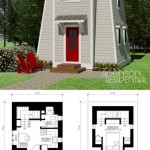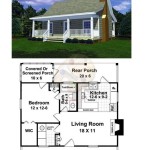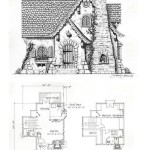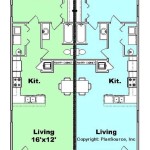How to Calculate the Cost of Building a House
Building a house is a significant financial undertaking. Understanding the various cost components and accurately estimating their respective values is crucial for making financially informed decisions. This article offers a comprehensive guide to assist you in calculating the cost of building a house, providing essential insights into the key factors that influence pricing and empowering you to make informed decisions throughout the process.
1. Determine the Square Footage and Building Type
The first step in estimating construction costs is to determine the square footage of your proposed house. This involves creating or obtaining detailed house plans that accurately represent the overall size of the structure. The building type, whether it's a single-story, two-story, or multi-story structure, also plays a crucial role in determining the costs.
Once you have the square footage, you can start to estimate the cost of the project. You can use online calculators or consult with a building contractor to get a more accurate estimate. The cost of materials and labor will vary depending on the location, the type of building materials used, and the complexity of the design. However, you can expect to pay between $100 and $200 per square foot for a new home construction.
2. Factor in Building Material Costs
Building material costs represent a significant portion of the overall budget. The specific materials chosen can dramatically affect the overall cost of the project. It is essential to consider the durability, aesthetics, and environmental impact of various materials. For instance, using high-end materials like hardwood flooring and granite countertops can elevate costs compared to using standard materials like carpet and laminate countertops.
Material costs are influenced by factors like market fluctuations, availability, and transportation. Researching current market prices and getting quotes from multiple suppliers can help you secure competitive pricing on essential materials. Consulting with a reputable building contractor experienced in managing costs and materials can ensure that the project stays within budget.
3. Account for Labor Costs
Labor costs are another major factor impacting the overall construction cost. These costs encompass the wages of skilled tradespeople involved in various stages of construction, including framing, electrical, plumbing, roofing, and finishing. The complexity of the design, the number of skilled professionals required, and the prevailing labor rates in your region significantly influence labor costs.
Obtaining quotes from multiple contractors and comparing their proposed labor costs is highly recommended. Inquiring about their experience, qualifications, and their approach to managing labor can provide insights into potential cost-saving measures. It is crucial to ensure that the contractor provides a detailed breakdown of labor costs, specifying the number of workers, their skills, and the estimated hours required for each task.
4. Estimate Architectural and Engineering Fees
If you are not working with a pre-designed house plan, you will need to factor in the costs of architectural and engineering services. These professionals play a crucial role in developing detailed plans, ensuring structural integrity, and complying with local building codes.
Architectural fees typically range from 5% to 10% of the overall construction cost. Engineering fees can vary depending on the complexity of the project and the required services. Engaging a qualified architect and engineer early in the planning process can ensure a well-designed and safe structure while also mitigating potential cost overruns.
5. Factor in Permits and Inspections
Obtaining permits and undergoing inspections is necessary for legal construction. These fees vary based on the location and the scope of the project. Researching the required permits for your specific construction project and contacting the relevant authorities can help you obtain accurate cost estimates.
It is essential to factor in these costs during your initial budget planning, considering the time and effort involved in obtaining permits and complying with inspections. Working with a reputable contractor who understands the local regulations and can manage the permit and inspection process efficiently can minimize potential delays and cost overruns.
6. Consider Contingencies and Unexpected Costs
Unforeseen costs can arise during construction, making it crucial to allocate a contingency fund to address unexpected situations. These contingencies might include discovering unforeseen site conditions, needing to adjust plans due to unexpected issues, or encountering delays due to weather or material supply disruptions.
Allocating a contingency fund of 10% to 20% of the estimated construction cost is a prudent approach. This buffer allows for flexibility in handling unexpected situations and keeps the project on track financially. It is vital to discuss contingency planning with your chosen contractor to ensure they have a clear understanding of the process and are prepared to address potential challenges.
7. Include Financing Costs
If financing your house construction, financing costs need to be considered. These costs include interest rates, loan origination fees, and any other charges associated with the loan. Obtaining quotes from multiple lenders and comparing their terms can help you secure the most favorable financing option.
Thoroughly researching the available financing options, understanding the terms of the loan, and factoring in the total cost of borrowing are crucial for making informed financial decisions. Working with a financial advisor can provide valuable insights into the financial implications of financing your house construction.
By carefully calculating the cost of building a house, you can make informed decisions regarding your construction project and ensure that it aligns with your financial goals. Remember to consider all the essential components, seek professional guidance, and diligently manage your budget throughout the process.

Estimated Cost To Build Report Information House Plans And More

Calculator Step 1 Cost To Build

House Plans With Cost To Build The Plan Collection

House Building Calculator Estimate The Cost Of Constructing A New Home

Prepare An Outline Cost Plan For A Proposed House In Chegg Com

Cost To Build A House In Missouri

What Is The Cost To Build A House Step By Guide

How To Estimate New Home Construction Costs 5 Tips

How To Calculate Bricks Build A House

How To Estimate The Cost Of Building A New House
Related Posts








